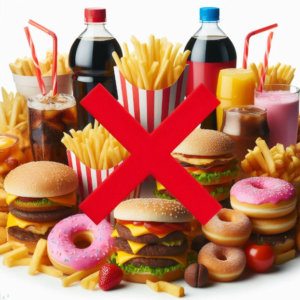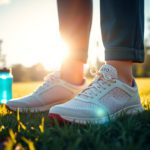Identify the Foods That Disrupt Sleep Quality and Trigger Insomnia
A multitude of foods can significantly disturb your sleep patterns, making it increasingly difficult to attain the restorative rest your body requires for optimal function. Which specific foods are widely recognised for their detrimental impact on sleep quality? In this comprehensive article, we will delve into the most troublesome dietary selections that can lead to insomnia and various other sleep-related challenges.
Experiencing insomnia entails not only the difficulty of initiating sleep but also the struggle to maintain it throughout the night. The repercussions of inadequate sleep can leave you feeling utterly exhausted during the day, severely affecting your concentration and productivity. This lack of quality rest can adversely impact your mood, resilience, and overall immunity, potentially paving the way for numerous health complications and illnesses. While many elements contribute to the onset of insomnia, your diet serves as a crucial factor in this complex equation.
Understand the Effects of Caffeinated Beverages on Sleep Quality
Caffeine, a naturally occurring psychoactive compound found in widely consumed products such as coffee, tea, and various energy drinks, can profoundly influence your capacity to fall asleep and stay asleep. As a well-known stimulant, caffeine complicates the initial stages of falling asleep and disrupts your sleep cycle by causing frequent awakenings throughout the night. Moreover, caffeine acts as a diuretic, prompting numerous trips to the restroom during the night, which further hampers your sleep. Given that caffeine can take several hours to metabolise and exit your system, it is prudent to refrain from consuming it post-midday to ensure a more restful night. 
Investigate the Connection Between Caffeine Consumption and Anxiety Levels
Another crucial aspect to assess is the relationship between caffeine intake and anxiety. Caffeine stimulates the central nervous system, and while many individuals may experience a brief surge of energy following caffeine consumption, others may encounter feelings of restlessness and jitters. This heightened state of anxiety can exacerbate the symptoms of insomnia. Research indicates that those with chronic anxiety frequently experience insomnia symptoms, which include challenges in both falling asleep and maintaining sleep throughout the night. This creates a vicious cycle of caffeine-induced anxiety that worsens existing sleep deprivation.
For individuals grappling with anxiety, it is essential to carefully monitor caffeine consumption to mitigate additional sleep disturbances. Notably, studies have shown that women generally consume slightly less coffee than men but may experience a more considerable increase in blood pressure from caffeine intake. The link between elevated blood pressure and insomnia presents a compelling rationale for eliminating caffeine from your diet.
Identify Caffeinated Foods That May Disrupt Your Sleep
You may be surprised to learn that numerous foods also contain caffeine. Items such as those containing cocoa or chocolate (particularly dark chocolate) contain caffeine due to the presence of the compound theobromine. Additionally, many common over-the-counter pain medications include caffeine as a significant component. For those battling insomnia, it is advisable to take such medications in the morning and select caffeine-free options later in the day. While moderate caffeine consumption has been associated with various health benefits, it is crucial to be mindful of your overall daily intake to avoid negative effects, such as heightened anxiety and disrupted sleep. Consider substituting that late-night cocoa with a soothing malted milk drink instead.
Furthermore, an intriguing consideration is the potential influence of genetics on individual responses to caffeine. Variations in specific genes can significantly determine how even small quantities of caffeine affect your sleep quality.
Your genetic predisposition towards caffeine sensitivity is a critical factor that should not be overlooked. If you struggle to achieve restful sleep after consuming even minimal amounts of caffeine, it may be beneficial to explore whether you possess a genetic trait that affects your response to this stimulant.
Moreover, if you are contending with insomnia, you may be tempted to consume coffee or energy drinks during the day to maintain alertness and focus. Unfortunately, this strategy can backfire, further disrupting your sleep quality at night.
If you are experiencing insomnia, it is highly recommended to completely eliminate caffeine during the evening hours or possibly remove it entirely from your diet.
Examine the Effects of Spicy Foods on Sleep Quality
While there may not be a direct link between spicy foods and insomnia, these foods can indirectly contribute to sleep disturbances. This occurs because they may provoke heartburn and indigestion, both of which are commonly associated with difficulties in falling asleep.
If you are already suffering from heartburn or indigestion, reclining can exacerbate these issues. When you lie down, stomach acid can flow back into the throat, causing discomfort and pain as it irritates the sensitive lining of the oesophagus. Interestingly, the consumption of spicy foods, such as those seasoned with ginger, chilli, or pepper, can elevate your body temperature. Proper sleep hygiene suggests that cooler temperatures are more conducive to quality sleep, making anything that raises your body temperature a poor choice for those dealing with insomnia.
Investigate the Potential for Spicy Foods to Induce Nightmares
Anecdotal evidence suggests that the consumption of spicy foods might influence sleep quality, resulting in nightmares and unusual dreams. Although scientific research has yet to definitively confirm this connection, some studies indicate that elevated body temperatures, similar to those experienced during fevers, can lead to unsettling dreams. While this relationship remains tenuous, it may possess some validity. If you relish spicy cuisine but find yourself troubled by disturbing dreams, it may be prudent to reconsider your evening meal choices!
Considering all the points discussed, if you are grappling with insomnia, it may be wise to avoid spicy foods within three hours of your bedtime.
Evaluate the Impact of High-Fat Foods on Sleep Quality
Picture this scenario: you’ve had an exhilarating night out, the bars are closing, and you decide to indulge in some delectable chips or perhaps a greasy kebab. While such a meal may be enticing, particularly after a few drinks, consuming a meal high in fat close to bedtime is ill-advised. Similar to spicy foods, meals rich in fats, especially saturated fats, can obstruct your ability to achieve restful sleep.
As you prepare for bed, your digestive system instinctively slows down. Your body is designed to digest food during daylight hours, not while you sleep. Consequently, the lack of digestive enzymes and the sluggish nature of digestion at night can lead to discomfort. This discomfort is exacerbated by lying down, as gravity does not assist in propelling food through your digestive system. Thus, eating high-fat foods shortly before bedtime can lead to restlessness or awakenings due to stomach discomfort.
Moreover, the duration it takes for you to fall asleep, the overall quality of your sleep, and the restorative benefits derived from sleep can all be adversely affected by consuming fatty foods close to bedtime. Unfortunately, this impact can be even more pronounced in women!
A study has indicated that the metabolism of fatty foods may inhibit the release of melatonin, the essential sleep hormone. This intricate biological process involves the enzyme P-elF2α functioning within cells.
The vital takeaway here is that if you are experiencing insomnia, it is advisable to avoid high-fat foods near bedtime and ideally eliminate them altogether from your evening meals.
Recognise the Detrimental Impact of Sugar on Sleep Quality
Throughout the night, it is customary for individuals to abstain from eating, allowing the digestive system time to rest and rejuvenate. During this interval, enzymes and hormones used for digestion throughout the day are dismantled, effectively resetting your gut for the forthcoming day.
Grasp the Reason Behind Avoiding Sugary Foods in the Evening
For most individuals, the body maintains sufficient energy reserves in the form of fat, enabling it to sustain itself for several hours without food. However, consuming a high-sugar or high-glycemic meal in the evening can trigger a sudden energy surge, leaving you feeling overstimulated or ‘wired.'
The rapid influx of sugar into the bloodstream, followed by a swift crash, can lead to sensations of hunger. This can complicate the process of falling asleep, as going to bed hungry is particularly undesirable, especially for those contending with insomnia. The desire to consume something else can intensify the issue of undigested food lingering in the gut at bedtime, resulting in further indigestion and heartburn, akin to the effects of fatty foods.
Many individuals enjoy a warm milky drink before sleep. If this is part of your nightly ritual, it is wise to refrain from adding sugar, as it has been linked to negatively affecting the duration of your sleep.
Consuming sugary foods before bedtime may lead to restless sleep and disturbing dreams. If you desire sweet dreams, it is prudent to avoid sugar in the hours leading up to sleep.
If you find it challenging to sleep, it may not have crossed your mind that your dietary choices can profoundly influence your sleep quality. While various foods can contribute to insomnia, caffeine, fats, sugars, and spices are the primary culprits. With this enhanced awareness of the foods that impact your sleep, you can take proactive measures to address your insomnia issues.
For additional insights on enhancing sleep quality, you may find this article beneficial.
References
The Link Between Caffeine and Insomnia
How Processed Carbs Impact Your Sleep
The Relationship Between Food and Sleep Disturbances
The Article: Is Food Sabotaging Your Sleep? Change Your Diet to Improve Sleep appeared first on https://janestevensnutrition.com
The Article: Food Sabotaging Your Sleep? Revamp Your Diet for Better Rest appeared first on https://janestevens.net
The Article Revamp Your Diet for Better Sleep Quality Was Found On https://limitsofstrategy.com


What an insightful exploration into the relationship between diet and sleep quality! It’s fascinating to consider how our everyday food choices can have such a profound impact on our ability to rest. I’ve personally noticed that consuming caffeine even earlier in the day can keep me tossing and turning at night. Additionally, I’ve found spicy foods to be another culprit for my sleep disturbances, as they often lead to discomfort that makes it hard to fall asleep.